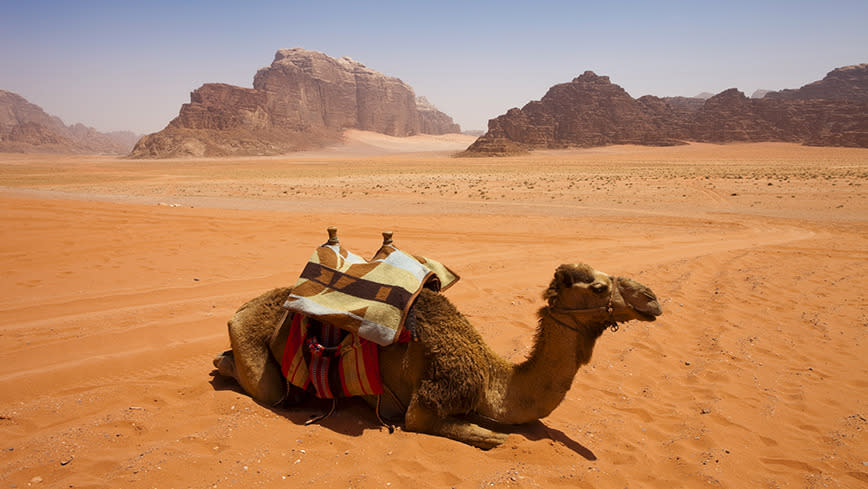Travelling in Lawrence of Arabia’s footsteps in Jordan
“No man can live his life and emerge unchanged. He will carry, however faint, the imprint of the desert, the brand which marks the nomad; and he will have within him the yearning to return, weak or insistent according to his nature. For this cruel land can cast a spell which no temperate clime can match.” –T.E. Lawrence
Tucked away in the southern desert of Jordan is Wadi Rum, a vast valley cut into the sandstone and granite cliffs near Aqaba. Also referred to as the Valley of the Moon, Wadi Rum has been inhabited since prehistoric times — and has cast its spell on travellers throughout the ages.
The British officer T.E. Lawrence, later known as Lawrence of Arabia, passed through the area several times during the Arab Revolt of 1917, and described Wadi Rum as “vast, echoing, and god-like” — and it is. Spanning 280 square miles, Wadi Rum is full of silent history. The rocks in the Khaz’ali Canyon are covered in petroglyphs in Thamudic, the most ancient Arabian script, from the fourth century B.C. The sand dunes are marred only by camel footprints (and the occasional SUV track). It is the only place on earth I have been that can shock you with its open, silent emptiness.
To truly experience Wadi Rum, spend the night in the private Captain’s Camp — a smaller version of the larger Captain’s Camp nearby — which will set you back US$130 a night.
RELATED: Travel back in time with the Bedouin of Jordan
At night, the staff there prepare lamb and vegetables, slow-cooked for hours in a zarb — a traditional underground oven covered by sand — and then, around a fire, a musician sings under the stars. You can either sleep in a tent, or do what my crew and I did: simply pass out on the pillows surrounding the fire after stargazing for hours.
Spending the night with the bedouin of Wadi Rum is a magical experience. You are fully unplugged, there is no electricity or cell service, and there is no sound... other than what you yourself make. It makes you realise that in this noisy, frenetic world, the sound never heard is actual silence. It is as if Wadi Rum is Nature’s cathedral, outdoing any splendour man has created.
This article originally appeared on Yahoo Travel.

 Yahoo Lifestyle
Yahoo Lifestyle 

